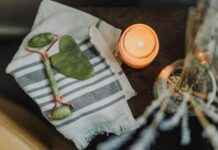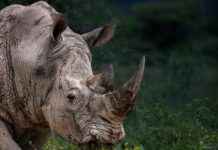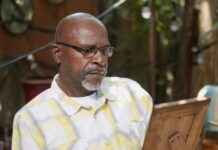Fearing her expulsion and ruin of her career, she kept her sexuality a secret her first year. Her second year was her first.
“OK, maybe I can trust this person, maybe they identify the way that I do,” said Normoyle now a lieutenant aboard the cutter Sanibel, based out of Woods Hole in Massachusetts. “But then, you always have that moment when it was that kinda leap of faith.”
This week marks the 10th anniversary of the end to “don’t ask don’t tell”. A new generation of military academy students says that their campuses are more welcoming, inclusive, and tolerant than ever before. However, there is still much work to do.
Sometimes, ignorant or homophobic comments are still made. Many transgender students are still uncomfortable coming out. Advocates say that the military should do more to include HIV-positive people, as well as intersex and nonbinary people.
Normoyle, 32 of Mount Laurel (New Jersey), and Chip Hall, a fellow cadet, led the creation of the Coast Guard Academy’s Spectrum Diversity Council. This was the first advocacy group for LGBTQ students at a U.S. military academy a few months after “don’t ask, don’t tell” ended Sept. 20, 2011. Similar groups were formed at four other service academies.
Prior to 1993’s approval of “don’t ask, don’t tell,” gays and lesbians were outlawed from the military. This allowed them to continue serving if they didn’t openly admit their sexual orientation. Advocates claim that the policy caused more problems than it helped. More than 100,000 military personnel have been dismissed based on sexual or gender identity in the past 100 years. 14,000 of these were during “don’t ask, don’t tell.”
In late 2010, Congress and President Barack Obama approved the repeal of the law. It became effective nine months later. This allowed lesbians, gays, and bisexuals to openly serve.
Marissa Howard, a second-year cadet at the Air Force Academy, Colorado, revealed that she came out as a lesbian just a few years back. She said she admires LGBTQ military personnel who have struggled to conform to the former policy.
Howard of San Antonio, who is a Spectrum member, said, “I commend them.” “I feel very integrated in the environment. It’s just a great place to feel like I’m seen and don’t have any need to hide who and what I am.”
She said that some fellow cadets don’t support LGBTQ classmates. She said that once, in an online class, someone called her “weird” because she was gay. Perhaps they thought she was muted.
The Coast Guard Academy in New London was only U.S. military academy that held a public event on Monday to celebrate the 10th anniversary. A dinner was attended by about 100 people. It featured a film on “don’t ask, don’t tell” followed by a discussion.
K.C. said that it’s difficult for many cadets to imagine what it was like. Their generation is more accepting. Commins is a senior Coast Guard Academy bisexual from Altoona (Iowa) and the current president of Spectrum Diversity Council.
“There are so many people now. Commins stated that it’s difficult to forget that we are here and that… it’s the new normal.
The Coast Guard Academy’s Superintendent, Rear Adm. William G. Kelly told the crowd Monday that the Coast Guard Academy has been working hard to include LGBTQ students and have developed a campus policy.
Transgender individuals were allowed to openly serve in the military starting in 2016. However, the Trump administration banned them from serving in any capacity in 2019. While President Joe Biden lifted the ban earlier in the year, some policies are still being developed at certain locations.
The U.S. The U.S. Naval Academy is a place where sexual orientation is almost non-existent, according to Andre Rascoe (a senior midshipman who was gay).
He said, “In my experience there are always the one or two people who feel uncomfortable sharing a room with or being on a sports team with someone from the queer community.”
Students will be confronted with a military environment after they graduate. This environment is where harassment and sexual assaultcontinues to be widespread and where lesbian, homosexual, and bisexual service personnel are disproportionately victims, according to an independent reviewing commission’s report submitted by Biden in June.
According to the Defense Department’s latest annual report on harassment and sexual assaults at West Point, the Air Force, and Naval Academies, 129 reported sexual assaults occurred during the 2019-20 schoolyear, compared with 149 last year. Twelve sexual harassment complaints were received, compared to 17 the year before.
Jennifer Dane, chief executive officer and director of The Modern Military Association of America (a LGBTQ advocacy group), stated that “Obviously there’s more room for growth.”
Dane, who was in the Air Force between 2010 and 2016, stated that the Air Force started investigating her sexuality during her first-year, but ended the probe when “don’t ask don’t tell” was repealed.
“When it was repealed… She said, “I was finally able be my authentic self and it was very empowering.”




















